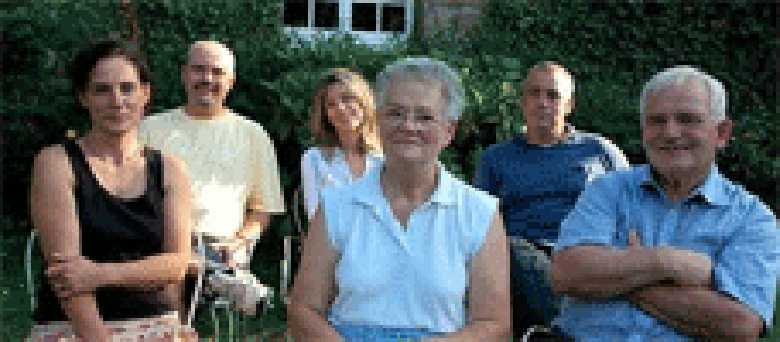Reviews
Retour en Normandie
Nicolas Philibert
France, 2007
Credits
Review by Cullen Gallagher
Posted on 25 July 2008
Source 35mm print
Thirty years after working as an assistant on René Allio’s I Pierre Rivière, Having Slaughtered My Mother, My Sister, and My Brother…, Nicolas Philibert returns to the small village where it was filmed in search of the farmers and other community members who acted in the movie. Philibert’s Back to Normandy, however, is only the latest in a series of self-reflexive re-visitations: in 1835, while in prison for murdering three of his family members, Pierre Rivière wrote his memoir, reflecting upon the events and circumstances leading up to the crime; in 1973, Michel Foucault, fascinated by the case, published a book based upon Rivière’s own memoir and the transcripts of the trial; in 1976, Allio adapted Foucault’s book, staging his film only miles away from the small village where the incident originally occurred; and in 2007, Philibert picked up the celluloid thread once again.
What is particularly fascinating is the way this series of reflections is filtered through Philibert’s own focus, which isn’t so much the motivation of the original crime, the debate of Rivière’s madness, or even really the production of Allio’s film: Philibert, a humanist documentarian, is primarily interested in the actors themselves, and the chatty charm and small-town warmth they radiate. At times, the film has the same whimsical pacing as a reverie between two old-friends on a porch as evening slips into night unnoticed. Willing to indulge in the villagers’ anecdotes and personal histories, Philibert captures a sense of small-town ephemera that is too often caricatured or exaggerated, and he does so with both sincerity and subtlety.
A refreshing variation on the behind-the-scenes documentary, the non-actors’ reflections I Pierre Rivière… reveal an earnest naivety seemingly unheard of in today’s Reality TV takeover, where everyone has had their 15 minutes of fame and demands more. As one actor said of making the film, “It allowed us to fill our curiosity,” as though the act of filmmaking itself had not yet been spoiled by overexposure. “A sad story, but we had a good laugh,” expresses another actor, with the casualness with which one would speak of a blunder at a family reunion.
Embedded in these modest memories is the crux of Philibert’s film: the idea that cinema can act as a personal, or even communal, history, and that the images don’t just tell the narrative as written in the script, but also act as a visual record of the real people involved in the production. It’s an example of narrative cinema functioning as a home movie. Philibert waits until the final moment of the film to reveal his true motivation for making the film: his own father, recently deceased, had a small role in the film that was eventually cut. (Michel Foucault, too, acted in the film, and likewise his scenes were also cut.) Philibert closes the film with the only remaining footage of his father from the rough cut, a few seconds of him seated regally in a chair, and while he moves his mouth, the soundtrack no longer exists, so all we are left with is the movement of his lips and the silence of the soundtrack. Without the dialogue, it is possible for us to merge the identities of the father and his character: for a moment, they are one and the same. It is this same bi-focal lens that Philibert brings to all of the actors/characters in I Pierre Rivière…
The most explicit example of using I Pierre Rivière… as a home movie occurs during an interview with one of the actors. Judging by the composition, it would appear that the actor is hardly the focus: two rows of three chairs have been set up evenly before the camera, the actor is off to the right near the edge of the frame while his family crowds the majority of the frame (his wife sits right in the middle and stares at the camera most of the time). The subject of discussion is the father’s role in the movie: apparently, he played “the lover,” which is beyond the comprehension of anyone in the family. “Did you used to look like a lover?” asks one of the young women in the frame. This elicits a resounding, “No,” from everyone around. For the actor’s family, it is impossible to separate the father from the character: much like with Philibert’s father, the two images are inexorable, forever ingrained upon one another.
Regarding Allio’s decision to shoot the film near the village where Pierre originally lived, Philibert said that, “It was as if Allio were giving back part of their history to them.” The praise makes much more sense when applied to Philibert: he is truly giving back to Normandy a piece of their history, a piece of their community.
We don’t do comments anymore, but you may contact us here or find us on Twitter or Facebook.



